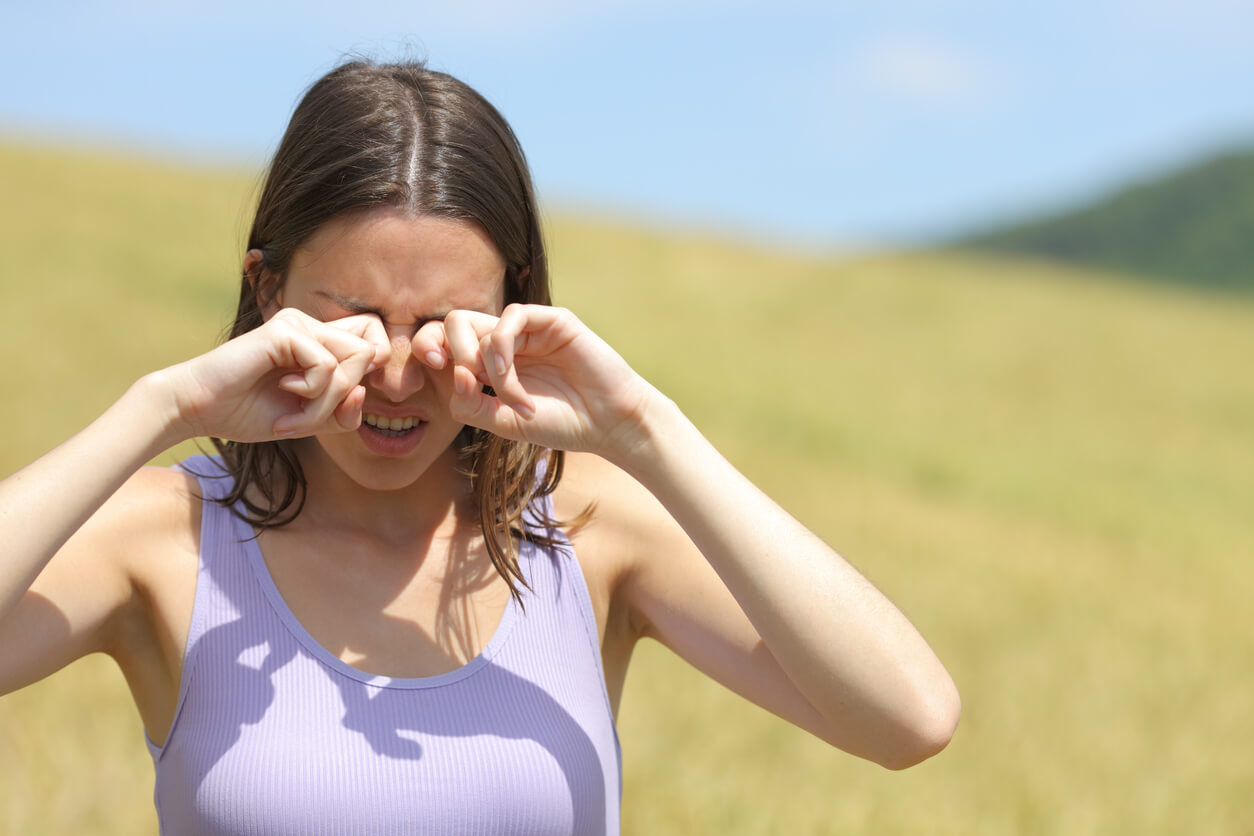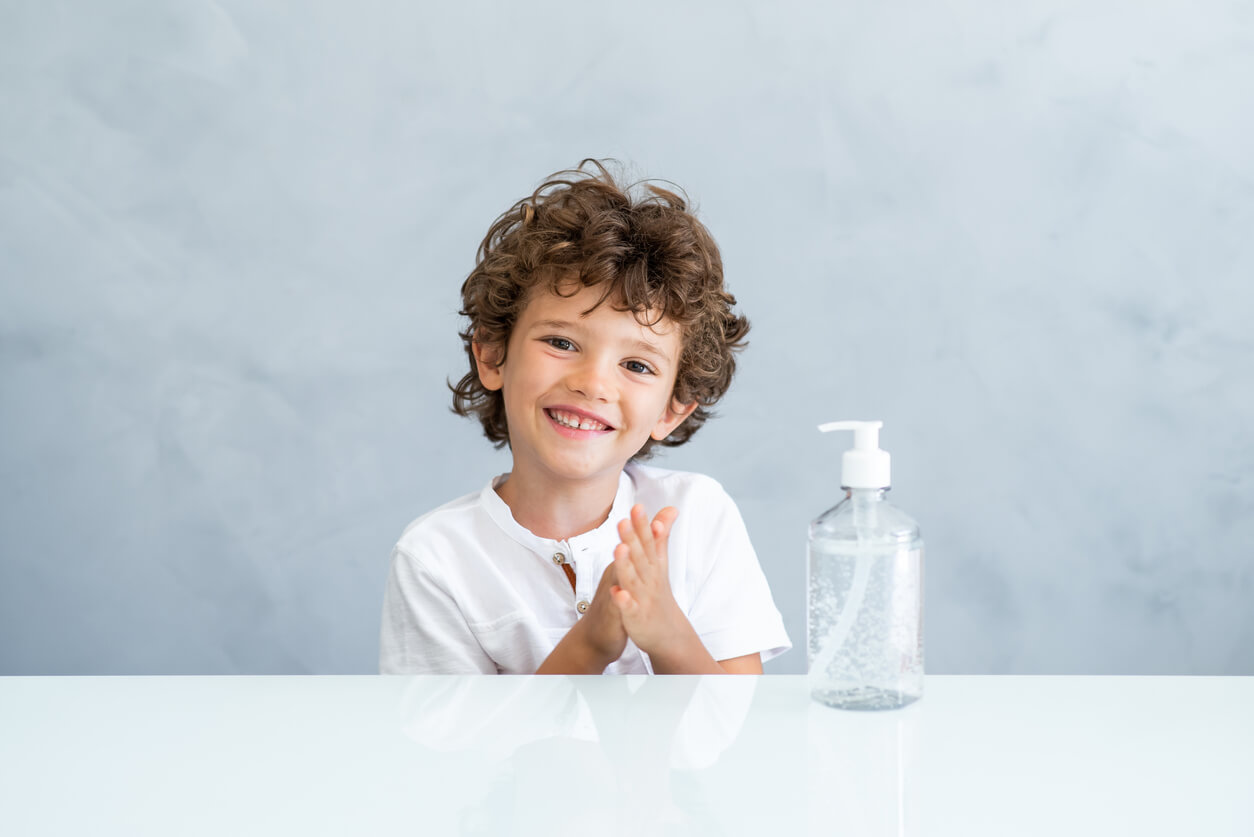Summer is a time for all things fun in the sun—warm breezes and cool beach water.
All is well unless you are one of the millions of people known to suffer from summer allergy symptoms. Those breezes and cool waters found in our Florida communities actually create humid, warm conditions perfect for allergies.
For adults, allergies in summer can be a nuisance at minimum. For children, summer allergy symptoms can be more disruptive and exacerbate other medical conditions. The Mayo Clinic has found that allergies tend to go hand-in-hand with other chronic illnesses that children have like asthma—which can cause medical emergencies especially for young children.
Find pediatrics near me now if you already know that it’s time to come up with an allergy management plan for your child. The following will help you understand more about summer allergies, summer allergy symptoms, how you can fight allergies in summer, and find out when does allergy season end.
What Are Summer Allergies?
Hay fever is the common term used to describe all of the different allergy symptoms that we may experience. The medical term is “seasonal allergic rhinitis.”
Following winter’s end and spring’s beginning— summer allergies move into full swing. The common summer allergens are pollens from:
- Trees
- Grasses
- Flowers
- Weeds
Mold, which is prevalent in our humid summers, releases spores into the air during its life cycle. Mold also survives indoors, and has a higher risk of causing more adverse summer allergy symptoms, especially in poorly ventilated and damper areas. Find pediatrics near me when you suspect mold is impacting your child.
In addition to the summer allergens listed above, year-round allergens also circulating are:
- Dust mites and dust from dirt
- Contaminants from cockroaches and other insects
- Cat, dog, rodent, and other people’s dander
With so many allergens around us, you may wonder, “when does allergy season end?”
Symptoms of Summer Allergies

Summer allergy symptoms vary, and often look the same as cold symptoms. Summer allergies can cause a runny nose, congestion, sinus pressure, and sinus infections. Common areas where you will experience allergies and allergy symptoms include:
Eyes
You may experience itchy or watery eyes. They may sting, and eye swelling is a common sign of allergies. In children, allergy-related swelling occurs under their eyes. Their under-eye area may look puffy and discolored.
Nose
The nose will become congested or stuffy and this can include itchy sensations that lead to sneezing. You will likely experience a runny nose. This is common in children. As your nose is running, it’s not uncommon for this to create some drainage down the back of the throat. This can lead to feelings of stomach ache and nausea.
Breathing
Coughing can occur from a runny nose or drainage. Allergens can also cause immune system responses in your airways that can cause asthma symptoms like constricted airways and chest tightness. Having hay fever increases your risks of asthma. A family history of asthma is a significant risk factor for developing allergic asthma, so find pediatrics near me right away.
Throat
You may have a scratchy throat that may or may not be sore. You could have either one of these symptoms or both at the same time. This is usually a secondary condition of on-going coughing or drainage.
Skin
Direct contact with allergens in the air can cause some predisposed people to develop itchy, dry, and irritated skin from summer allergies. In some cases, it can lead to more severe reactions like atopic dermatitis which produces scaly, bumpy, or dry patches on the skin. Sometimes these patches may ooze, blister, and crack.
Energy Levels
Numerous studies have found that seasonal allergies can cause high levels of mental and general fatigue. Ragweed induced allergic rhinitis has been shown to cause reduced motivation and feelings of sadness.
While ragweed is considered a prime cause of allergies in the fall, its season here in Florida extends from May all the way to December.
Warning: Never assume that a sore throat and other symptoms of summer allergies will always only be allergies in children. Stay mindful of illnesses like colds, flus, and strep throat. Find pediatrics near me now and contact us when you observe new allergy symptoms in your child—especially if fever starts.
What Can You Do to Fight Summer Allergies?
There are a few things that you can do to combat summer allergy symptoms.
Changing Clothing after Being Outdoors
Try to have everyone in your family change their clothes after being out for the day or spending time outside. The purpose of this is to try to prevent and reduce the amount of allergens that get tracked into the home
Removing Your Shoes before Entering Your Home
This practice follows the same line of thought as changing your clothes after being outside of the home for the day or spending time outdoors. Try to find a place that you can store your shoes near where you exit the home.
Washing Off after Being Outdoors
Use plain water and do a light wash off in the shower or bath when you or your children first come back indoors. This will wash off residual particles of pollens, molds, and other airborne allergens. You don’t need to use soap for this since frequently using soaps can dry out the skin.
Eye Washing
Use a clean washcloth and wet it with cool water. Place it over your eyes and squeeze it out to create a gentle rinse for the eyes. Encourage younger children to join you. It’s ok if they are not yet comfortable
Use Allergen Reduction Grade Air Filters
You can purchase high quality air filters for your HVAC. They can be more costly, but often offer up to three months of protection versus normal filters that usually need to be changed monthly.
Clean Frequently
The EPA recommends cleaning your home at a frequency that reduces dust mites, pollen, animal dander, and other allergens. You can also use allergen proof covers for bedding, and wash bedding in hot water.

Try Taking Over-the-Counter (OTC) Allergy Medication
Try OTC medicines to help reduce symptoms from allergies. The most common are low-dose steroid nose sprays and 12 or 24-hour dose antihistamines. Both medicines have been used at the same time.
When Does Allergy Season End?
So really—when does allergy season end? Unfortunately, our temperate climate with mostly warm, wet weather conditions causes seasonal allergies year-round. Ragweed and mold are year-round problems in Florida. We rarely to almost never experience icy or dry periods long enough to reduce seasonal allergies.
Seasonal pollens may only produce within their respective season, but allergens in general are a year-round problem.
This doesn’t mean that you and your family will be affected by every allergen though. Schedule with us today to ask questions if you think your family is experiencing summer allergies .
Come See Us to Get Help with Relief from Allergies
At Worldwide Pediatrics, we offer options for allergy management and relief. When OTC medications are not working for your child, we can try prescribed medicine. For harder to treat allergies, we offer different immunotherapies such as allergy shots.
We can also provide emergency management plans and injectable epinephrine. Let us help make sure that your child has an allergy management plan for daycare, school, and extracurriculars.



